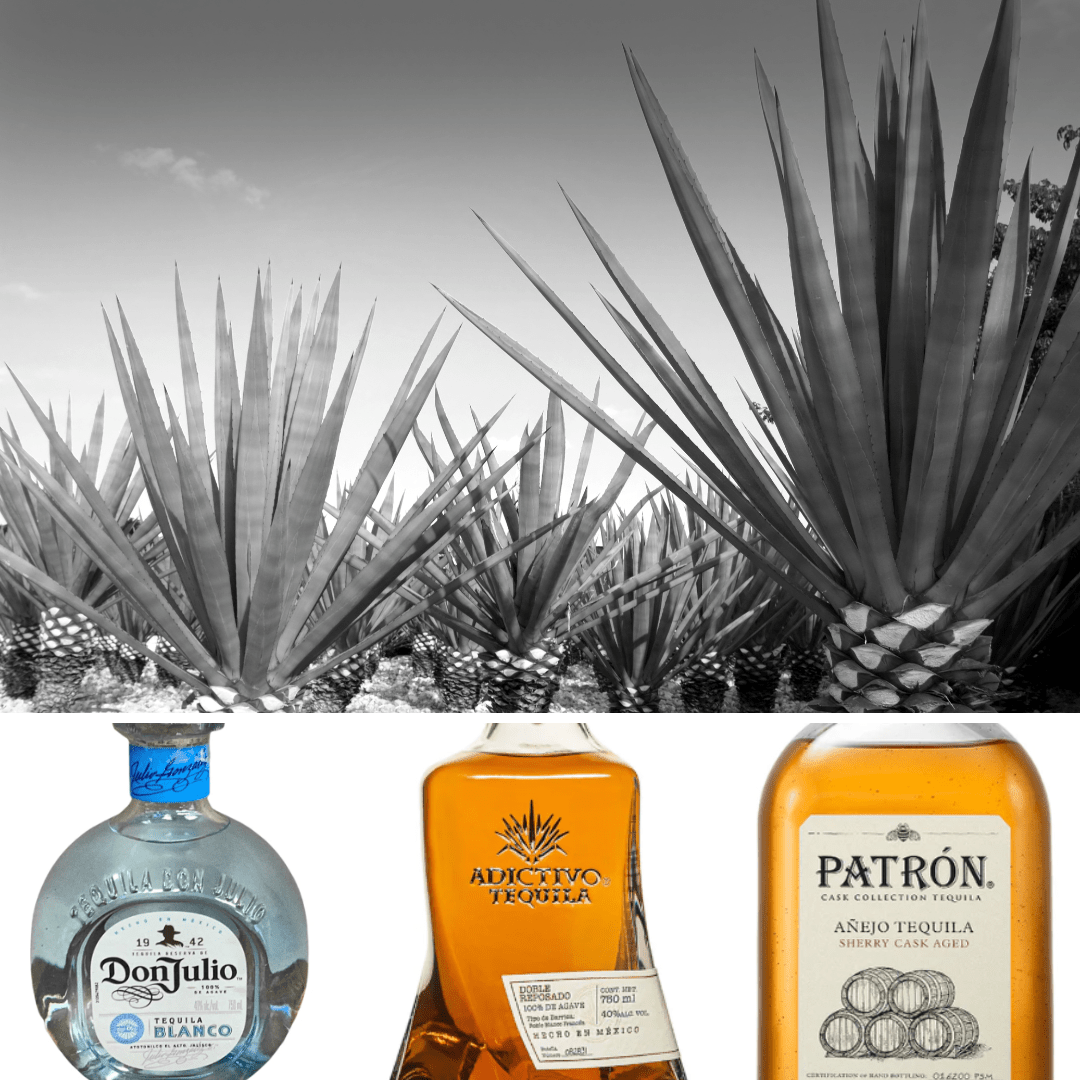Tequila is one of the most iconic spirits in the world, deeply rooted in Mexican culture and widely enjoyed across the globe. But not all tequilas are created equal—different aging processes and production techniques result in a wide variety of flavors and characteristics. If you're a tequila lover or just starting your journey, it’s important to understand the four main types of tequila: Blanco, Reposado, Añejo, and Extra Añejo.
In this blog post, we’ll explore the key differences between these varieties, helping you better appreciate their distinct qualities and guiding you toward finding your favorite type.
1. Blanco Tequila
Also known as Silver or Plata, Blanco tequila is the purest expression of the agave plant. This unaged tequila is bottled immediately after distillation, though it may rest for up to 60 days in stainless steel or neutral containers to mellow its flavors slightly.
- Flavor Profile: Blanco tequila offers a clean, fresh taste with strong agave notes. Expect bright flavors like citrus, herbs, pepper, and earth. Because it’s unaged, it retains the raw characteristics of the blue agave plant.
- Best For: Blanco tequila is perfect for cocktails like margaritas or palomas, but it’s also excellent for sipping if you enjoy bold, unadulterated agave flavors.
2. Reposado Tequila
Reposado, meaning "rested" in Spanish, is aged for a minimum of two months and up to one year in oak barrels. This aging process allows the tequila to absorb subtle flavors from the wood, softening the raw agave taste and adding new dimensions.
- Flavor Profile: Reposado tequila has a balance of agave flavors with hints of vanilla, caramel, and spices from the oak barrels. You’ll still taste the essence of the agave, but with smoother, richer undertones.
- Best For: Reposado is a great choice for sipping or for cocktails that require a bit more depth, like a tequila Old Fashioned. It’s a crowd-pleaser for those looking to step up from Blanco but not ready for the full complexity of aged tequilas.
3. Añejo Tequila
Añejo tequila is aged for at least one year but less than three years in small oak barrels, which gives it a deeper, more complex character. This extended aging process allows the spirit to develop richer flavors and a smoother, silkier mouthfeel.
- Flavor Profile: Añejo tequilas are known for their notes of oak, caramel, chocolate, and sometimes tobacco. The aging process imparts a darker color and a rich, full-bodied taste that’s perfect for slow sipping.
- Best For: Añejo tequila is ideal for those who appreciate the nuanced flavors of aged spirits like whiskey or rum. It’s meant to be savored neat or with a single ice cube to enhance its complex character.
4. Extra Añejo Tequila
The most luxurious of the tequila types, Extra Añejo (or "ultra-aged") is aged for over three years in oak barrels, which results in a rich, decadent spirit. This category was introduced in 2006 and is perfect for connoisseurs who want the ultimate aged tequila experience.
- Flavor Profile: Extra Añejo tequila has a deep amber color and intense flavors of oak, vanilla, spice, and dark chocolate. It’s incredibly smooth and often compared to fine cognacs or aged whiskies due to its complexity and richness.
- Best For: Extra Añejo tequila is best enjoyed neat or with a splash of water to open up the flavors. It’s a luxurious sipping experience for those who appreciate the art of aging spirits.
Final Thoughts: Discovering Your Perfect Tequila
Whether you prefer the fresh, bold flavors of Blanco tequila or the rich, complex character of Extra Añejo, each type of tequila offers a unique tasting experience. From cocktails to sipping, there’s a tequila for every occasion and palate.
For those just starting to explore the world of tequila, try experimenting with all four types to find your favorite. You may even discover that different occasions or moods call for different tequilas, making this versatile spirit a staple in your collection.

